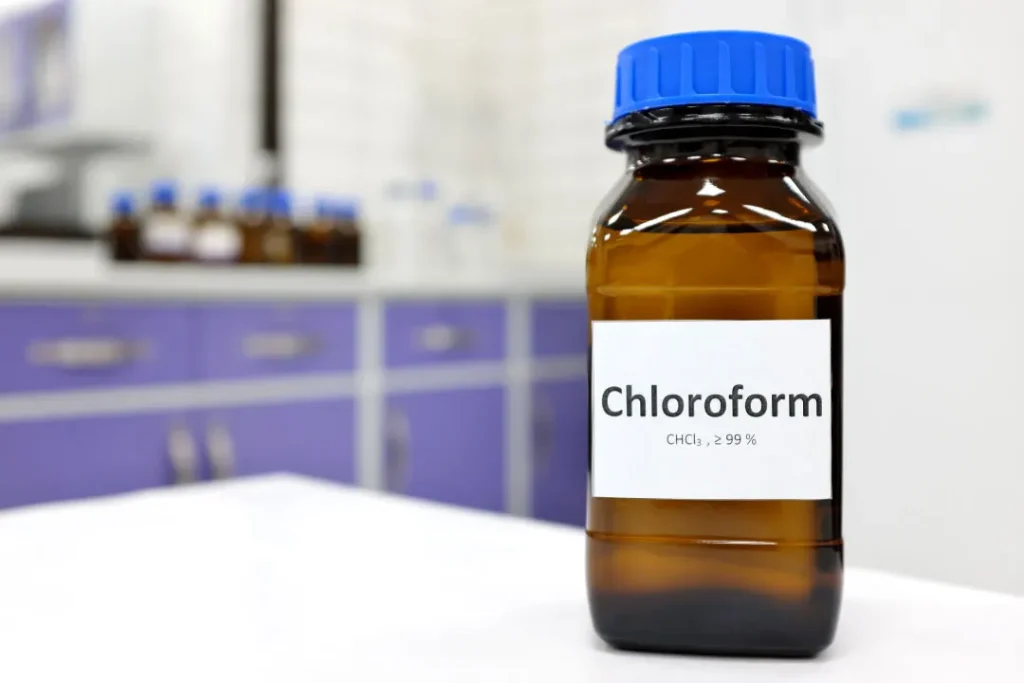A synthetic substance known as sulbutiamine is a member of the nootropic agent family, which includes drugs that are known to improve memory, concentration and cognitive ability. The health benefits of sulbutiamine do not only comprise improving cognitive performance but sulbutiamine also excels in mood elevation and reducing stress. In the 1960s, Takeda Pharmaceuticals, a Japanese firm, created it for the first time.
Sulbutiamine is a byproduct of thiamine; It is a water-soluble nutrient required for the body to produce energy. However, sulbutiamine, is fat-soluble, unlike thiamine, which enables it to cross the blood-brain barrier and affect the central nervous system (CNS). The nature of sulbutiamine, its health advantages, the best dosage, side effects, possible drug interactions, and any other pertinent details pertaining to the responsible use of this nootropic supplement will all be covered in this piece.
You May Also Like:
The Best Nootropics for Learning and Memory: 5 Top Brands Reviewed
The Best Nootropics for Motivation: 5 Great Supplement Ingredients That Really Work
Nature of Sulbutiamine
Two thiamine molecules are joined by a sulfur particle to form the synthetic molecule known as sulbutiamine. Its chemical formula is C32H46N8O6S2, and it has a molecular weight of 702.9 g/mol.
White crystalline powder that is formed by the above reaction is known as sulbutiamine and it is soluble in organic solvents like ethanol and chloroform. Although it can degrade in alkaline circumstances, it is generally stable in acidic and neutral solutions.

Health Benefits of Sulbutiamine
Numerous health advantages of sulbutiamine have been mentioned, including enhanced mood, better cognitive function, and increased energy. These effects are thought to be brought on by its capacity to raise thiamine levels in the brain, which are crucial for energy consumption and the production of neurotransmitters.
Sulbutiamine has also been demonstrated to boost the production of dopamine, a neurotransmitter linked to motivation, reward, and joy. The following are a few of the health advantages of sulbutiamine:
- Enhanced Cognitive Process
Sulbutiamine has been shown in numerous studies to improve cognitive abilities such as learning, memory, and concentration. In one research, healthy volunteers who took 400 mg of sulbutiamine daily for two months compared to volunteers who took a placebo, demonstrated significant improvements in memory and focus.
According to another research, sulbutiamine enhanced learning ability and memory in rats. The capacity of sulbutiamine to raise acetylcholine levels in the brain which is a neurotransmitter that is essential for learning and memory is believed to be the mechanism underlying these effects.
- Mood-Boosting
Additionally, sulbutiamine has been implicated in elevating happiness. Sulbutiamine was discovered to be equally as effective as the antidepressant medication fluoxetine in treating the symptoms of depression in a study of patients with major depressive disorder.
According to another study, sulbutiamine was found to lessen signs of fatigue and elevate mood in healthy volunteers. These impacts are thought to be brought on by sulbutiamine’s capacity to raise brain dopamine levels which are linked to pleasure and reward.
- Higher Energy Levels
It has been demonstrated that sulbutiamine boosts vitality and lessens fatigue. In one study, it was discovered that sulbutiamine helped patients with chronic fatigue syndrome feel less worn out and have clearer minds.
According to another research, sulbutiamine decreases fatigue in healthy volunteers. These effects are believed to be brought on by sulbutiamine’s capacity to boost adenosine triphosphate (ATP) synthesis which is the body’s main source of energy.

Chemistry of Sulbutiamine
Thiamine, also known as vitamin B1 can be manufactured into its derivative which is known as sulbutiamine by combining two molecules of thiamine and a sulfur group. Thiamine is an important vitamin for both nerve and energy metabolism.
As previously stated, sulbutiamine has a better bioavailability than thiamine due to its higher lipid solubility and can cross the blood-brain barrier.

Physiological Mechanism of Action of Sulbutiamine
Sulbutiamine influences the central nervous system by raising the concentrations of chemicals like acetylcholine, norepinephrine, and dopamine. Additionally, it increases the action of glutamate receptors, which are crucial for memory and learning.
Sulbutiamine also boosts the activity of the ATPase enzyme in brain cells, which serves to improve cellular function and produce energy. Furthermore, it has been demonstrated that sulbutiamine increases the density of dopamine receptors in the brain, which could aid in enhancing mood and drive.
Researchers discovered that sulbutiamine improved cognitive performance in healthy volunteers by enhancing attention, memory, and processing speed in a study that was published in the Journal of Psychopharmacology.
Sulbutiamine improved cognitive function and decreased fatigue in people with chronic fatigue syndrome as stated in the International Journal of Neuropsychopharmacology.

Optimal Dosage of Sulbutiamine
The ideal sulbutiamine dose is influenced by a number of variables, including age, weight, sex, and general health. However, daily doses of 200–600 mg have been used in the majority of the trials, with 400 mg being the most common.
To establish personal tolerance and determine the ideal dosage, it is advised to begin with a lower dose and progressively increase it over time. It’s also crucial to remember that sulbutiamine shouldn’t be taken continuously for long stretches of time to prevent tolerance for this supplement.
Side Effects of Sulbutiamine
There have been few reported side effects for sulbutiamine which otherwise is usually regarded as safe and well-tolerated. Some people may experience minor adverse effects like insomnia, gastrointestinal distress, and headaches. By adjusting the dosage or taking the supplement with meals, these side effects which are typically minor and transient can be reduced.
Potential Substance Interactions with Sulbutiamine
Other substances, including prescription drugs and other supplements, may combine with sulbutiamine. Before taking sulbutiamine, it’s essential to talk to a doctor if you’re taking any medications or have any medical conditions that need to be treated. Sulbutiamine might interact with the following substances:
- Alcohol: Sulbutiamine may intensify the effects of alcohol and raise the possibility of negative side effects like sleepiness and poor balance.
- Antidepressants: Sulbutiamine may combine with antidepressant drugs such as monoamine oxidase inhibitors (MAOIs), tricyclic antidepressants, and selective serotonin reuptake inhibitors (SSRIs).
- Blood thinners: Sulbutiamine may interact with drugs that thin the blood, like aspirin and warfarin which raise the chance of bleeding. Supplement interactions: Sulbutiamine may have interactions with other supplements, such as caffeine, phenibut, and other nootropics. Sulbutiamine may raise the likelihood of adverse effects when combined with other supplements.

Responsible Use of Sulbutiamine
- Safety: When taken at recommended doses, sulbutiamine is usually regarded as safe and well-tolerated. If you have any pre-existing medical problems or are taking any medications, you should speak with a healthcare provider before taking sulbutiamine.
- Timing: To prevent disrupting slumber, sulbutiamine is best taken in the morning or early afternoon. In order to maximize absorption and reduce gastrointestinal distress, sulbutiamine should be consumed with food.
- Cycling: Sulbutiamine should be cycled, which means it shouldn’t be taken continuously for long amounts of time. This aids in keeping efficacy over time and preventing the emergence of tolerance to this supplement.
- Quality: To guarantee purity and potency, choose a high-quality sulbutiamine supplement from a renowned manufacturer.
Sulbutiamine:
Conclusion
Sulbutiamine is well-known for its nootropic properties along with its ability to improve mood and motivation. Thus, if you are seeking a good supplement that can help you enhance your memory, focus and cognition whilst elevating your mood, sulbutiamine is a great choice.
It affects your brain health positively by influencing the central nervous system and elevating the concentration of important neurotransmitters that take part in memory building, reacting speed and learning. However, it is pivotal to remember to seek advice from healthcare professionals to know the appropriate dosage and combination of sulbutiamine that is suitable for you especially if you have any medical history.
A different source of sulbutiamine from a different company differs in purity, dosage and quality. Hence, choose and pick wisely from a reputable source and a trustable seller to obtain the best effects of sulbutiamine.
References:
- “Sulbutiamine improves memory and attention in healthy volunteers” from the Journal of Psychopharmacology. Retrieved from: https://journals.sagepub.com/doi/10.1177/0269881106060963
- “Sulbutiamine treatment for major depressive disorder: a randomized, double-blind, placebo-controlled trial” from Neuropsychiatric Disease and Treatment. Retrieved from: https://www.dovepress.com/sulbutiamine-treatment-for-major-depressive-disorder-a-randomized-dou-peer-reviewed-article-NDT
- “Sulbutiamine counteracts trophic factor deprivation induced apoptotic cell death in transformed retinal ganglion cells” from the journal Neurochemistry International. Retrieved from: https://www.sciencedirect.com/science/article/abs/pii/S2211034817301190
- “Chronic fatigue syndrome: Improvement in patients treated with sulbutiamine” from the International Journal of Neuropsychopharmacology. Retrieved from: https://academic.oup.com/ijnp/article/5/1/67/653700
Important Note: The information contained in this article is for general informational purposes only, and should not be construed as health or medical advice, nor is it intended to diagnose, prevent, treat, or cure any disease or health condition. Before embarking on any diet, fitness regimen, or program of nutritional supplementation, it is advisable to consult your healthcare professional in order to determine its safety and probable efficacy in terms of your individual state of health.
Regarding Nutritional Supplements Or Other Non-Prescription Health Products: If any nutritional supplements or other non-prescription health products are mentioned in the foregoing article, any claims or statements made about them have not been evaluated by the U.S. Food and Drug Administration, and such nutritional supplements or other health products are not intended to diagnose, treat, cure, or prevent any disease.


